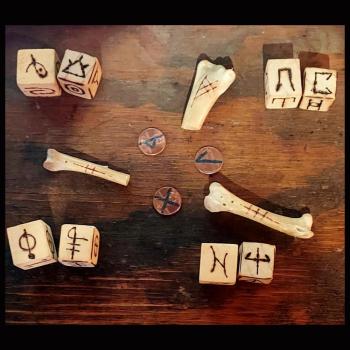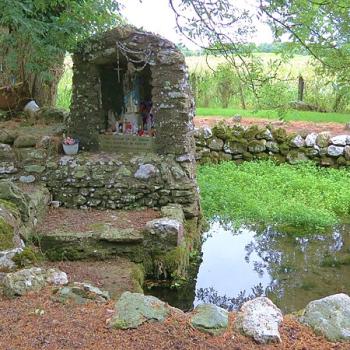In Deuteronomy 19:14 there is an interesting idea. The Israelites were not to remove the landmarks set by the previous generations. Why? So if one were to come home after a long time, they could find their way to their kinsmen. Then in Deuteronomy 19:15-19, it talks about the witness concept. An Israelite must have two witnesses testify for a conviction. If it is found that one of them gave a false testimony, the magistrates were to investigate and if found guilty, the witness was to receive the punishment he had plotted to befall the other.
The next section lays out the rules of war. There is even a pre-battle pep talk the priests were to give the men. They were to ensure the soldiers that G-d would accompany them into battle. Fascinatingly, in Deuteronomy 20:5-8 it says that any man who had built a house but not yet dedicated it, planted a vineyard but not yet harvested fruit, had become engaged but not married her, or was scared or whose heart was not in battle was to be sent home. We have an interesting collection of thoughts here.
Why the house and vineyard? My drash (commentary) is that these men were in the early stages of life, they were not settled and if they were to be gone many years or die in battle, they would leave a lot of hard work to their wives and families. I think it is clear why a man who had not yet married his bride-to-be was to go home until he married. And I think it noble and smart to keep the frightened and disenfranchised men off the battlefield. Were I to fight in a trench war or hand-to-hand combat, I would want confident and brave men at my side, not men who might abandon the field.
Now to the actual fighting. G-d said to the Israelites that should they go to a town to attack it, first they must offer the option of surrender. If that offer was rebuffed, they were only then to lay siege. When the towns were far away, the Torah says the men were to be killed and the children and women taken captive as well as all the livestock and valuables. But, when the town was near Israel, everyone was to be killed. Not a pretty thought but the reality of war and avoidable if they surrendered. It also tells us that if it was to be a long siege, the troops could eat from the crops and trees growing in the city but may not cut them down.
The end of this parsha talks about eglah arufah. The law of elgah arufah related to the discovery of a dead body. If a person was found murdered on a street or field and no one could determine who had killed the person, the magistrates would measure to see which town was the closest. Then the residents of that town would sacrifice a heifer and the priests would wash their hands over the dead heifer and say that their hands had not shed the blood nor had their eyes seen the deed. Then they would ask G-d to release the Israelites and not let the guilt for the death of an innocent person stay on their conscience. Then they would be absolved.
All in all, this parsha is less of a story and more like tying up loose ends. Reminders to us to behave, even when our grand old parent (Moses) is gone. How difficult was it for Moses to tell us all these details and know that even with it written down, we would falter on our path?
Parshat Shoftim from G-dcast.com
More Torah cartoons at www.g-dcast.com





